Today Current Affairs: 25th June 2021 for UPSC IAS exams, State PSC exams, SSC CGL, State SSC, RRB, Railways, Banking Exam & IBPS, etc
Table of Contents
Regulation Of Microfinance: RBI:
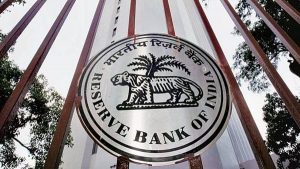
Reserve Bank of India has released a Consultative Document on Regulation of Microfinance. It has been released for harmonising the regulatory frameworks for various regulated lenders in the microfinance space.
The key proposals of the Consultative Document are enumerated below:
- A common definition of microfinance loans for all regulated entities.
- Capping the outflow on account of repayment of loan obligations of a household to a percentage of the household income.
- A Board approved policy for household income assessment.
- No pre-payment penalty; no requirement of collateral; and greater flexibility of repayment frequency for all microfinance loans.
- Alignment of pricing guidelines for NBFC-MFIs with guidelines for NBFCs.
- Introduction of a standard simplified fact sheet on pricing of microfinance loans for better transparency.
- Display of minimum, maximum and average interest rates charged on microfinance loans on the websites of regulated entities.
- Taking into consideration the constantly evolving milieu in the financial sector, it is proposed to review the regulatory framework for Non-Banking Financial Company – Micro Finance Institutions (NBFC-MFIs).
- There is a case for having a framework which is uniformly applicable to all regulated lenders in the microfinance space including scheduled commercial banks, small finance banks and NBFC-Investment and Credit Companies, rather than prescribing these guidelines for NBFC-MFIs alone.
Inland Vessels Bill, 2021:

The Union Cabinet gave the nod to the Inland Vessels Bill, 2021.
- It will replace the Inland Vessels Act, 1917.
- The Bill will regulate safety, security and registration of inland vessels.
- A key feature of the Bill is a unified law for the entire country, instead of separate rules framed by the States.
- The Bill provides for a central data base for recording the details of vessel, vessel registration, crew on an electronic portal.
- It requires all mechanically propelled vessels to be mandatorily registered. All non-mechanically propelled vessels will also have to be enrolled at district, taluk or panchayat or village level.
- The certificate of registration granted under the proposed law will be deemed to be valid in all States and Union Territories, and there will be no need to seek separate permissions from the States.
National Portal For Transgender Persons:
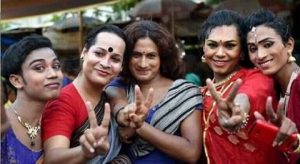
Just over six months after it was launched, the Centre’s national portal for issuing certificates of identity to transgender persons has issued 1,557 certificates as of June 16, 2021, according to Social Justice and Empowerment Ministry data.
- In November 2020, Union Minister for Social Justice & Empowerment launched a ‘National Portal for Transgender Persons’.
- It has been developed within 2 months of Notification of Transgender Persons (Protection of Rights) Rules, 2020 on 29 September, 2020.
- This Portal would help a transgender person in applying for a Certificate and Identity card digitally from anywhere in the country.
- The most important benefit is that it helps the transgender person to get the I-Card without any physical interface and without having to visit any office. Through the Portal, they can monitor the status of their application that ensures transparency in the process.
- Getting Transgender Certificate and Identity Cards as per their self-perceived identity is an important provision of The Transgender Persons (Protection of Rights) Act, 2019.
Annual Review Of State Laws 2020:
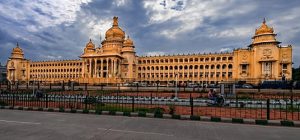
The study report, “Annual Review of State Laws 2020,” which covered 19 States was released by the PRS Legislative Research (“PRS”), a New Delhi-based think tank.
- The Karnataka legislature, which is bicameral, met on 31 days last year, the highest for any State in 2020.
- It was followed by Rajasthan (29 days) and Himachal Pradesh (25 days).
- For comparison, Parliament met for 33 days last year.
- In 2020, the average number of sitting days for the 19 States was 18, which was 11 less than the four-year (2016-19) average of 29.
Number of bills
- As for the number of Bills passed last year, Karnataka again topped the list with 61 Bills, followed by Tamil Nadu (42) and Uttar Pradesh (37). For this purpose, Appropriation Bills were excluded.
- Among poor performers under this category, Delhi passed only one Bill; West Bengal passed two Bills, and Kerala three Bills.
- On the duration of time taken to pass Bills, the previous year saw 59% of the Bills being passed by the legislature of the States on the day of introduction.
- A further 14% was adopted within a day of being introduced.
- Only 9% of the Bills was passed more than five days after introduction, some of which were referred to committees for further examination.
Renewable Power Generation Costs In 2020 Report.:

The International Renewable Energy Agency (IRENA) released the ‘Renewable Power Generation Costs in 2020’ report.
- 810 gigawatts (GW) capacity of the world’s existing coal-fired plants i.e. 38% of the total global energy capacity now have higher operating costs than new utility-scale photovoltaics and onshore wind energy.
- The cost range for generation of fossil fuel-fired power in G20 countries is estimated to be between USD 0.055 per kilowatt-hour (kWh) and USD 0.148/kWh.
- Replacing this expensive coal power with renewables will save operators USD 32 billion a year and reduce annual carbon dioxide emissions by around three billion tonnes.
- Renewable capacities added in 2019 would have saved emerging and developing nations USD 6 billion per annum compared to the same capabilities from conventional sources.
- The year 2020 was a record year for renewables deployment despite the Covid-19- pandemic, with 261 GW installed. The addition was almost 50% higher than that made in 2019 and represented 82% of the global new power capacity.
- Around 162 GW or 62% of total renewable power capacity added last year had lower costs than the cheapest new fossil fuel option.
- Supplies from Sources Added in 2020: Geothermal > Photovoltaics (PV)> Wind power> Hydropower > Bioenergy> Concentrating solar power.
- Between 2000 and 2020, renewables capacity grew more than three times, increasing by 754 GW to 2,799 GW.
- The growth was occasioned by advancements in technologies, consistent fall in component costs, cost-competitive supply distribution channels, learning by using and commercial-scale availability.
International Renewable Energy Agency:
- It is an intergovernmental organisation, it was officially founded in Bonn, Germany, in January 2009.
- Currently it has 164 members, India is the 77th Founding Member of IRENA.
- It has its headquarters in Abu Dhabi, United Arab Emirates.
Futuristic Infantry Combat Vehicles (FICVs):

The Indian Army has issued a tender, or a Request For Information (RFI), for the procurement of 1,750 Futuristic Infantry Combat Vehicles (FICVs) to replace the Russian-origin infantry vehicles in service.
- This is the Army’s third attempt for the procurement of a new infantry vehicle.
- According to the RFI, the FICVs would be employed for cross-country operations, including amphibious operations in plain and desert terrain along the Western borders and high altitudes, up to 5,000 m, and mountain terrain along the northern borders in eastern Ladakh, the central sector and north Sikkim. They would replace the 1980s vintage Russian-origin BMP-2.
- Based on the responses to the RFI, the Army would finalise the specifications and also decide the procurement category.
- The main operational tasks that would have to performed by the FICV include destroying enemy tanks, armoured personnel carriers, combat vehicles, low-flying helicopters and other ground-based weapon platforms and positions.
Chandrayaan-2: New developments:
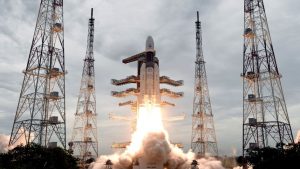
Chandrayaan-2, hovering over the Moon, has found new developments on the hot outermost layer of the bright star known as Corona.
These include:
- Abundances of magnesium, aluminium and silicon in the solar corona.
- Around 100 microflares were observed, providing new insights about coronal mass heating.
- Reasons behind coronal heating problem:
- The corona emits ultraviolet, X-rays and consists of ionised gas at temperatures exceeding 2 million degrees
- Fahrenheit, while just 1,000 miles below, the surface known as the photosphere simmers at just 10,000 degrees
- Fahrenheit. This mysterious difference in temperatures is called the coronal heating problem.
- As per the latest findings, the high temperatures could be due to strong magnetic fields present above the Sunspots (dark patches seen in visible images of the Sun).
Chandrayaan-2 Mission:
- The Chandrayaan-2 mission, which was lost after it hard landed on the dark side of the Moon in 2019, remains active in the form of its orbiter hovering over the Moon.
Shanghai Cooperation Organisation (SCO):
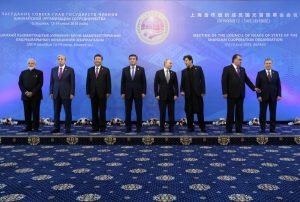
National Security Advisor Ajit Doval has proposed an action plan against Pakistan-based terror groups Lashkar-e-Taiba (LeT) and Jaish-e-Mohammad (JeM) as part of the Shanghai Cooperation Organisation (SCO) NSAs meet.
- LeT and JeM have been responsible for many terror attacks in India, especially in the Union Territory of Jammu and Kashmir.
- JeM, created with the support of the Pakistan spy agency, was responsible for the Pulwama terror attack in which 40 Indian soldiers died.
- Full implementation of UN resolutions and targeted sanctions against UN-designated terrorist individuals and entities.
- Adoption of international standards to counter terror financing including an MOU between SCO and Financial Action Task Force (FATF).
- Monitoring new technologies used by terrorists. This included use of drones and misuse of dark web, artificial intelligence, blockchain and social media.
About the Shanghai Cooperation Organisation (SCO):
- It is a permanent intergovernmental international organisation.
- It’s creation was announced on 15 June 2001 in Shanghai (China) by the Republic of Kazakhstan, the People’s Republic of China, the Kyrgyz Republic, the Russian Federation, the Republic of Tajikistan, and the Republic of Uzbekistan.
Task Force For Mission Karmayogi:
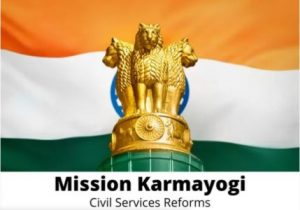
Former Infosys CEO S D Shibu Lal has been appointed chairperson of a three-member task force formed to help the government in bringing major bureaucratic reforms through its ambitious “Mission Karmayogi“.
- The task force has been constituted to draw a clear road map for the guidance and operationalisation of the ‘Karmayogi Bharat’ and the constitution of a Special Purpose Vehicle (SPV).
About Mission Karmayogi:
- The ‘National Programme for Civil Services Capacity Building – Mission Karmayogi’ was launched to effect a transformational shift from rule based training to role-based capacity development of all civil services in the country so as to enhance citizen experience for government services and improve availability of competent workforce.
The core guiding principles of the Programme will be:
- To emphasize on ‘on-site learning’ to complement the ‘off-site’ learning,
- To create an ecosystem of shared training infrastructure including that of learning materials, institutions and personnel,
- To calibrate all Civil Service positions to a Framework of Roles, Activities and Competencies (FRACs) approach and to create and deliver learning content relevant to the identified FRACs in every Government entity.
- To make available to all civil servants, an opportunity to continuously build and strengthen their Behavioral, Functional and Domain Competencies in their self-driven and mandated learning paths.
Toycathon 2021:
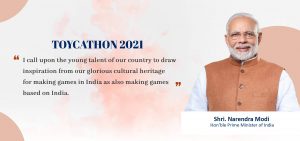
The Prime Minister of India urged people to be “vocal for local toys”, while interacting with the participants at the Toycathon 2021.
- It was a joint initiative by the Ministry of Education, WCD (Women and Child Development) Ministry, Ministry of Micro, Small and Medium Enterprises, Textile Ministry, Ministry of Information and Broadcasting and All India Council for Technical Education.
- It was launched on 5th January 2021 to crowd-source innovative toys and games ideas.
- Aim:
- To conceptualize innovative toys based on the Indian value system which will inculcate positive behaviour and good value among the children.
- To promote India as a global toy manufacturing hub (Atmanirbhar Bharat).
- Features:
- Based on: Indian culture and ethos, local folklore and heroes, and Indian value systems.
- Themes: Nine themes, including fitness and sport and rediscovering traditional Indian toys.
- Participants: Students, teachers, start-ups and toy experts.
- Prize: Participants can get prizes upto Rs. 50 lakhs.
Covid-19 Delta Plus Variant:
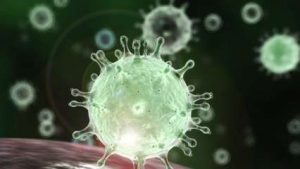
The Union Ministry of Health and Family Welfare (MoHFW), has warned people against the new Covid-19 strain ‘Delta Plus’ (DP).
- There is fear that this new variant may spark the third wave of Covid-19.
- Delta plus (B.1.617.2.1/(AY.1) is a new variant of the SARS-CoV-2 coronavirus formed due to a mutation in the Delta strain of the virus (B.1.617.2 variant).
- It is technically the next generation of SARS-COV-2.
- This mutant of Delta was first detected in Europe in March 2021.
- The Delta variant that was first detected in India (in February 2021) eventually became a huge problem for the whole world.
- However, the Delta Plus variant, at present, is limited to smaller areas in the country.
- It is resistant to monoclonal antibodies cocktail.
- Since it’s a new variant, its severity is still unknown.
- People reported symptoms like headaches, sore throats, runny noses, and fever.
- The World Health Organisation (WHO) is tracking this variant as part of the Delta variant, it is doing so for other Variants of Concern with additional mutations.
- Transmissibility: It has acquired the spike protein mutation called K417N which is also found in the Beta variant first identified in South Africa.
- The spike protein is used by SARS-CoV-2, the virus which causes Covid-19, to enter the host cells.
- Some scientists fear that the mutation combined with other existing features of the Delta variant could make it more transmissible.
Sant Kabir Das Jayanti:
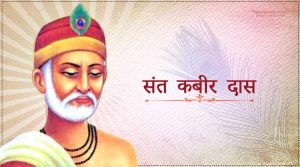
Sant Kabir Das Jayanti was observed on 24th June, 2021 to mark the birth anniversary of Sant Kabirdas.
- Kabirdas Jayanti is celebrated on the Jyeshtha Purnima tithi, as per the Hindu lunar calendar.
- Sant Kabir Das was born in the city of Varanasi, Uttar Pradesh. He was a 15th century mystic poet, saint and social reformer and a proponent of the Bhakti Movement.
- Kabir’s legacy is still going on through a sect known as Panth of Kabir, a religious community that considers him as the founder.
- His early life was in a Muslim family, but he was strongly influenced by his teacher, the Hindu bhakti leader Ramananda.
- Kabir Das’ writings had a great influence on the Bhakti movement and includes titles like Kabir Granthawali, Anurag Sagar, Bijak, and Sakhi Granth.
- His verses are found in Sikhism’s scripture Guru Granth Sahib.
- The major part of his work was collected by the fifth Sikh guru, Guru Arjan Dev.
- He was best known for his two-line couplets, known as ‘Kabir Ke Dohe’.
- Kabir’s works were written in the Hindi language which was easy to comprehend. He used to write in couplets to enlighten people.
Bhakti Movement:
- The movement probably began in the Tamil region around the 6th and 7th century AD and achieved a great deal of popularity through the poems of the Alvars (devotees of Vishnu) and Nayanars (devotees of Shiva), the Vaishnavite and Shaivite poets.
- The Alvars and Nayanars travelled from place to place singing hymns in Tamil in praise of their gods.
- The Nalayira Divyaprabandham is a composition by the Alvars. It is frequently described as the Tamil Veda.
- At a different level, historians of religion often classify bhakti traditions into two broad categories: saguna (with attributes) and nirguna (without attributes).
- The saguna included traditions that focused on the worship of specific deities such as Shiva, Vishnu and his avatars (incarnations) and forms of the goddess or Devi, all often conceptualised in anthropomorphic forms.
- Nirguna bhakti on the other hand was worship of an abstract form of god.
Social Order:
- This movement was responsible for many rites and rituals associated with the worship of God by Hindus, Muslims and Sikhs of Indian subcontinent. For example, Kirtan at a Hindu Temple, Qawaali at a Dargah (by Muslims), and singing of Gurbani at a Gurdwara.
- They were often opposed to the establishment and all authoritarian monastic order.
- They also strongly criticized all sectarian zealotry and caste discrimination in society.
- Hailing from both high and low castes, these poets created a formidable body of literature that firmly established itself in the popular narratives.
- All of them claimed relevance for religion in social life, in the sphere of real human aspirations and social relationships.
- Bhakti poets emphasized surrender to god.
- The movement’s major achievement was its abolition of idol worship.
Unlawful Activities (Prevention) Act (UAPA):

The Delhi High Court granted bail to Jawaharlal Nehru University students Devangana Kalita and Natasha Narwal and Jamia Millia Islamia student Asif Iqbal Tanha, arrested under the Unlawful Activities (Prevention) Act (UAPA) in connection with the northeast Delhi riots in 2020.
- Notwithstanding the fact that the definition of ‘terrorist act’ in Unlawful Activities (Prevention) Act (UAPA) is “wide and even somewhat vague”, the phrase ‘terrorist act’ cannot be permitted to be casually applied to criminal acts that fall squarely within the definition of conventional offences, the Delhi High Court remarked.
- It said the word ‘terrorism’ or ‘terror’ has nowhere been defined in the UAPA. Hence, the court must be careful in employing the definitional words and phrases used in section 15 (of the UAPA that defines ‘terrorist act’).
UAPA:
- The Unlawful Activities Prevention Act (UAPA) was enacted in 1967.
- Section 15 of the UAPA defines “terrorist act” and is punishable with imprisonment for a term of at least five years to life. In case the terrorist act results in death, the punishment is death or imprisonment for life.
- The 2004 amendment was to ban organisations for terrorist activities, under which 34 outfits, including the Lashkar-e-Taiba and the Jaish-e-Mohammad, were banned.
- The 2019 amendment gave the Home Ministry the power to designate individuals as terrorists.
- In September 2019, the four individuals to be first designated as terrorists were JeM chief Masood Azhar, LeT’s Hafiz Saeed, his deputy Zaki-ur-Rehman Lakhvi, and underworld don Dawood Ibrahim, who planned and executed the 1993 Mumbai serial blasts.
Rice Bran Oil:
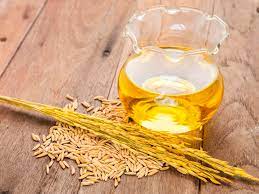
Department of Food and Public Distribution E-launched “NAFED Fortified Rice Bran Oil”.
- Rice bran oil is the oil extracted from the hard outer brown layer of rice called chaff (rice husk). It is known for its high smoke point of 232 °C (450 °F) making it suitable for high-temperature cooking methods such as stir frying and deep frying.
- Rice bran oil has a composition similar to that of peanut oil.
- Rice Bran oil has multiple health benefits, including lowering cholesterol level due to its low trans-fat content and high mono unsaturated and poly unsaturated fat contents. It also acts as a booster and reduces the risk of cancer due to the high amount of Vitamin E it contains.
- This oil is recommended by the World Health Organization (WHO) as one of the best substitutes for other edible oils.
NAFED:
- National Agricultural Cooperative Marketing Federation of India Ltd (NAFED) is an apex organization of marketing cooperatives for agricultural produce in India.
- It was founded on 2 October 1958.
- It is registered under Multi State Co-operative Societies Act.
- It is Headquartered in New Delhi.




